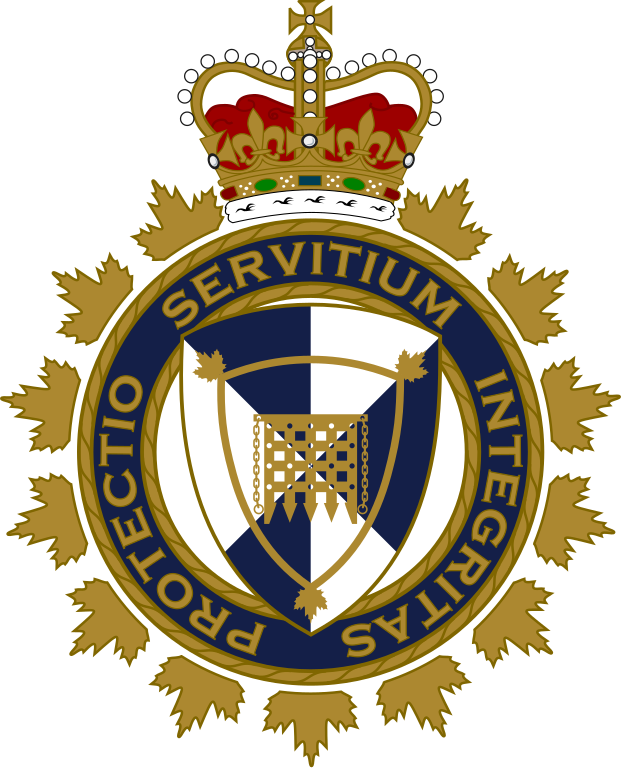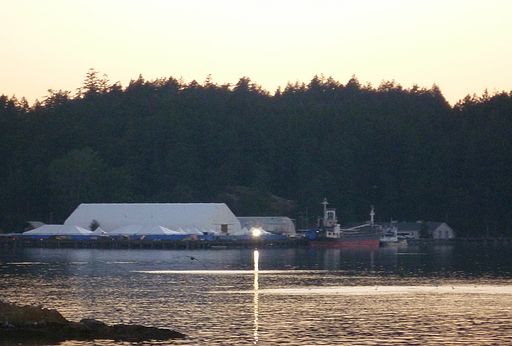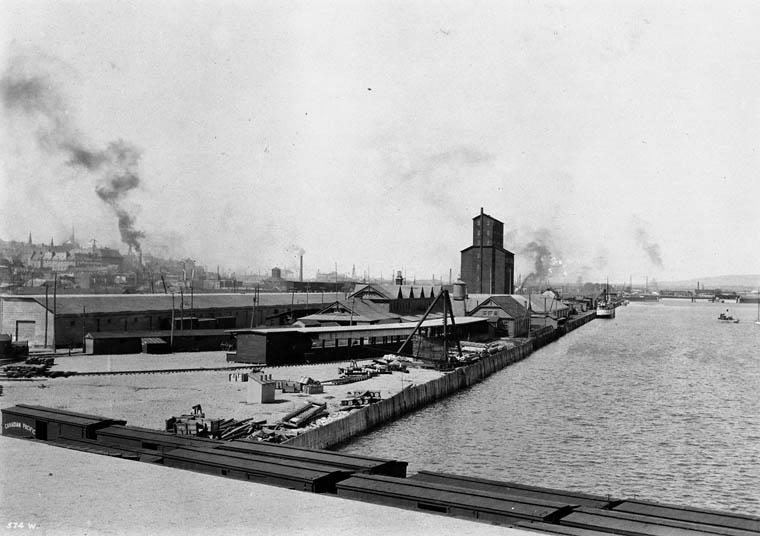The Canada Border Services Agency (CBSA) is a federal law enforcement agency. It operates under the minister of Public Safety Canada. In 2003, after the 11 September 2001 attacks, Canada created the CBSA. The government aimed to provide an integrated border security system.
The CBSA is responsible for border enforcement, immigration control and customs services in Canada. It enforces the Immigration and Refugee Protection Act (IRPA). (See also Immigration Policy in Canada.) It regulates the movement of goods and people. The agency aims to protect national security, facilitate trade and ensure immigration compliance.

Background
Before the CBSA's creation, multiple agencies managed Canada’s border. The Canada Customs and Revenue Agency collected customs, duties and taxes. Citizenship and Immigration Canada oversaw immigration enforcement. The Canadian Food Inspection Agency ensured food safety at ports of entry. This fragmented structure led to inefficiencies and communication breakdowns.
The government combined many of these responsibilities and created the CBSA. In doing so, they wanted to improve risk assessment, information sharing and border security operations.
The CBSA introduced various initiatives to streamline border processes and improve security. Automated Border Clearance (ABC) kiosks allow travellers to self-process. The NEXUS program expedites entry for pre-approved, low-risk individuals. Meanwhile, advanced risk-assessment technologies strengthen threat detection in shipments. These innovations aim to streamline processes. However, they also raise concerns about privacy, potential biases and increased surveillance.
The CBSA operates around 1,200 ports of entry in Canada and 35 abroad. The agency oversees 117 land-border crossings, 13 international airports, and major marine and rail operations. Many sites run 24-7 to balance security and trade facilitation.
CBSA Mandate and Powers
The CBSA's mandate is to secure Canada while facilitating trade and travel. It seeks to prevent the entry and exit of illegal goods and individuals, such as weapons, drugs and human traffickers. But the agency also seeks to promote smooth border crossings.
As part of its duties, the agency enforces customs regulations. It collects import duties and taxes. It also upholds international trade agreements.
The CBSA enforces immigration laws. CBSA officers conduct immigration screenings. They can also detain unauthorized immigrants and carry out deportations when necessary.
Challenges and Controversies
Privacy and Device Searches at Canadian Ports
The CBSA uses technology to enhance security and streamline travel and trade. These aim to minimize delays for both travellers and businesses. However, CBSA agents have searched travellers’ phones, tablets and laptops without warrants. This has led to privacy concerns. In 2017–18, the Office of the Privacy Commissioner of Canada received complaints about such practices.
In March 2022, the Canadian government introduced new legislation to tackle this. It aimed to better protect travellers' privacy during searches of electronic devices at the border. In August 2024, the Ontario Court of Appeal issued a ruling on this subject. It ruled that CBSA officers are not allowed to search electronic devices without a warrant. It stated that such searches are unconstitutional. The court further prohibited officers from accessing cloud-based data. These notably include information or pictures stored remotely.
Lack of Independent Oversight
Until 31 October 2024, the CBSA lacked independent oversight. This raised significant concerns about accountability. For instance, detained individuals in immigration holding centres have complained about their mistreatment. However, their complaints often went unaddressed. This was because there was no external independent body to systematically review these cases.
The Canadian government responded by creating the Public Complaints and Review Commission (PCRC). The PCRC is supposed to oversee the RCMP and CBSA. Despite this move toward greater transparency, concerns remain that the system fails to protect individuals' rights. This has prompted calls from critics for even stronger mechanisms to address misconduct from law enforcement.
Racial Profiling and Discriminatory Practices
Discrimination by CBSA employees has been another persistent issue. In 2022, about one-quarter of front line CBSA employees reported seeing discriminatory behaviour. Often, discrimination was based on race, ethnicity or national origin. (See Racism.)
Accordingly, the CBSA has implemented its Zero Tolerance for Racism and Discrimination policy. It aimed to prevent and address discriminatory practices within the agency. The CBSA has also incorporated the government's Gender-based Analysis Plus (GBA+) framework. GBA+ considers the intersectional impact of policies on various groups; for instance, along gender, racial and ethnic lines. It aims to do so to better address discrimination and promote equity within the agency. (See also Gender Equity.)
Reforms and Future Challenges
The CBSA faces growing challenges related to border security and immigration enforcement. The agency is under pressure to balance national security with humanitarian obligations. Moreover, due to conflict, economic instability and climate change, migration patterns are intensifying.
The CBSA’s enforcement practices have long faced scrutiny. This has prompted policy shifts and reform. In 2021, Public Safety Canada announced measures to reduce the use of provincial jails for immigration detention. It also aims to promote community-based Alternatives to Detention (ATD). ATDs are framed as a more humane approach. However, critics are concerned aboutf the potential for violence and that ATDs function as extended surveillance tools. Some argue ATDs continue to restrict individuals' freedoms.
The CBSA expanded the use of risk-assessment technologies. These include the use of artificial intelligence and biometric screening in immigration decisions. This expansion has raised concerns, particularly for racial profiling, privacy violations and the potential for algorithmic bias.
Additionally, the CBSA collaborates with the United States on cross-border security measures. It also has intelligence-sharing agreements with the US. This raises questions about the erosion of asylum protections and due process. After the 11 September 2001 attacks, Canada signed the Safe Third Country Agreement (STCA) with the US. The CBSA is responsible for enforcing the STCA at designated ports of entry. The STCA requires asylum seekers to apply for protection in their first “safe” country of entry. This prevents most asylum seekers from the US from claiming protection at official Canadian border crossings. There are exemptions, however. For refugee rights advocates, the STCA raises concerns that Canada is prioritizing security over asylum seekers' rights. They argue that it limits access to legal asylum pathways, contributing to irregular migration. (See also Canadian Refugee Policy.)
Moreover, the CBSA is facing ongoing challenges in addressing car theft and firearm smuggling. Organized crime groups often use border crossings to transport stolen vehicles and firearms. In 2021, the CBSA seized over 1,100 firearms at Canadian borders. (See also Gun Control in Canada.) The CBSA must address these challenges while balancing security and human rights.

 Share on Facebook
Share on Facebook Share on X
Share on X Share by Email
Share by Email Share on Google Classroom
Share on Google Classroom


